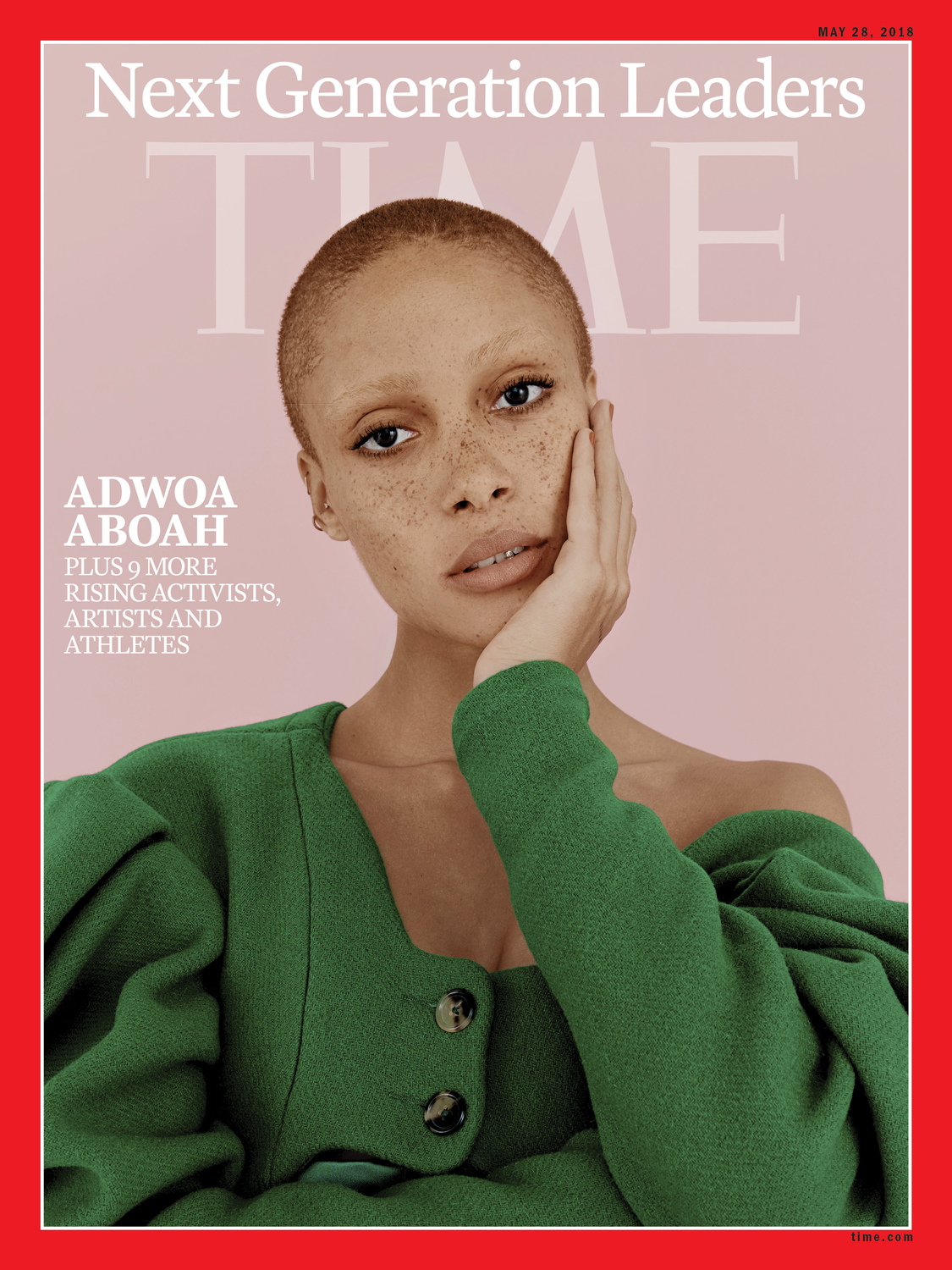With her shaved head, freckles and jeweled tooth, Adwoa Aboah doesn’t look like most of the supermodels who came before her. And yet since her November debut on the cover of British Vogue (the first issue under the publication’s first black editor, Edward Enninful), Aboah, 25, has assembled a list of accomplishments that places her firmly in their ranks. She has fronted campaigns for major brands, such as Chanel, Burberry and Revlon. She has won awards, including the British Fashion Council’s highly coveted Model of the Year (a designation previously given to Kate Moss, among others). And in May, she appeared at the Met Gala alongside icons like Donatella Versace and Cindy Crawford. Growing up in London, Aboah, whose father is Ghanian, says she thought the fashion industry “had no room” for girls like her. Now she’s redefining what’s in vogue. “I put so many limitations on myself,” she says. “Now I set absolutely no boundaries.”

It wasn’t an easy path. As a teenager, Aboah was uncomfortable in her own skin, and she developed severe anxiety and depression. “I was completely consumed by fear,” she says. She turned to drugs, specifically ketamine, to cope. Left unchecked, those issues followed her into adulthood. “I had no concept of how to talk openly about [what I was going through],” she says. “So I stopped speaking, and I stopped feeling.” In 2015, just as her modeling career was taking off, she fell into a four-day coma after a failed suicide attempt.
Once Aboah entered treatment, however, she discovered the power of therapy: “Having a frank conversation about what’s going on in your life helps you stop feeling alone.” She went on to co-found Gurls Talk, an organization that aims to create spaces for women to come together, both online and in person, to discuss mental health, body image and sexuality. “In the beginning, there were small things. Maybe it was not feeling attractive at school,” she says of her depression. “But what we concentrate on in Gurls Talk is that these small things need to be as important as the big things.”
For Aboah, activism is more than a trend. “Before I even decided that I wanted to model, I decided that I would take on the responsibility of activism” she says. In a speech at the start of London Fashion Week in February, Aboah spoke out against sexual harassment and exploitation in the fashion industry. She called upon fashion insiders to “help change the system that has allowed such rampant abuse of power.” Speaking to TIME, Aboah—who has never been a victim herself—added: “If we can keep constant pressure, all of those monsters will be pushed out” she tells TIME.
Adwoa’s arms are decorated with delicate tattoos that point to her sense of female solidarity. Tiny letters spell ‘Gurl’ on the back of her right palm and ‘Power’ on her left. A line from African-American poet Nayyirah Waheed, ‘All the women. In me. Are tired,’ is drawn across both her wrists. “I’m made up of so many women…my mom—a woman who’s helped me through this journey, the girls I meet through Gurls Talk, and all the wonderful people that come into my life” she says. “I take parts of them and that’s what I’m made up of.”
Now Aboah, whose Instagram page lists her as an activist first and model second, plans to bring Gurls Talk to Ghana; she also hopes to break into acting at some point. “I don’t think there will ever be a moment where I am finished.”
- Donald Trump Is TIME's 2024 Person of the Year
- TIME’s Top 10 Photos of 2024
- Why Gen Z Is Drinking Less
- The Best Movies About Cooking
- Why Is Anxiety Worse at Night?
- A Head-to-Toe Guide to Treating Dry Skin
- Why Street Cats Are Taking Over Urban Neighborhoods
- Column: Jimmy Carter’s Global Legacy Was Moral Clarity




